BIOGRAPHY
| Broinowski, Anna | Datsun Angel |
| Erlich, Dassi | |
| Folbigg, Kathleen | Inside out |
| Gilbert, Elizabeth | All the way to the river |
| Purnell, Sonia | Kingmaker |
| Wilson, Graham | Arnhem’s kaleidoscope children |
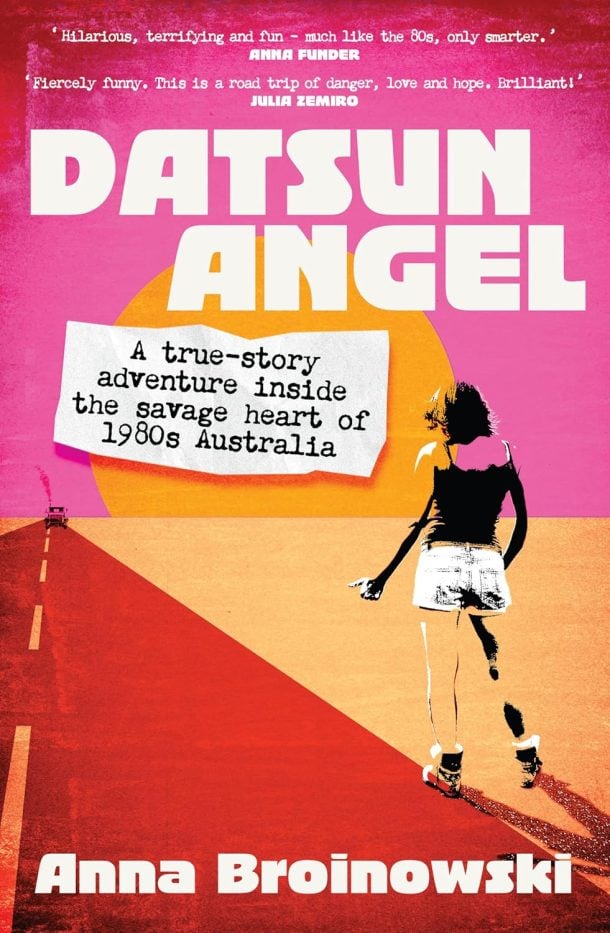 Datsun Angel by Anna Broinowski
Datsun Angel by Anna Broinowski
Anna Broinowski’s memoir, Datsun Angel: A true-story adventure inside the savage heart of 1980s Australia, begins in the hallowed residential halls of the University of Sydney. Hazing rituals, sexist humiliation, class snobbery and drinking cultures are in full swing. Broinowski manages to be a misfit in this environment quite by accident – by being, saying or doing the “wrong thing”, according to the North Shore Old Boys’ culture. This culminates in targeting and bullying, until she ends up the victim of a horrific hazing ritual. A chance encounter in the women’s toilets leads her to finally find “her people” at the uni – the Dramatic Society crowd. It’s via these interesting and creative types that Broinowski’s world is expanded. The pictures she paints of her friends from this time make for delightful reading – whether they are feminist non-conformists constructing vagina-centric art films, or creative men not interested in fitting masculine norms. A moment of self-reckoning and disillusionment leads to her deciding to hitchhike to Darwin, with a male friend from this crowd. What happens on the road creates an interesting juxtaposition between the untamed wild lands of the Australian interior and the sandstone buildings of Sydney Uni. A horrendous encounter with truck drivers reads like what might have happened had they dropped a woman in the middle of Wake in Fright. You recognise the layered violence in it, while being all too familiar with the tactics women use when navigating similar situations. Contrasting this experience, however, with her earlier recollection of uni boys laughing about the seeming pack rape of a girl in yet another “prank”, you’re left chewing on the “acceptability” of the latter, due to the different context. Perhaps the harsh light of the outback brings abuse and discrimination into sharper relief? Broinowski’s work is compelling. She will drop an act of misogynistic brutality into a paragraph, actively mirroring how casually it was spoken about at the time. The ways in which she introduces us to the people in her story gives us incredible insight into how each of them affected her. Broinowski’s experiences, unfortunately, remain timeless and relatable. We still hear of hazing rituals and sexual assaults on campus. We still lose at least one woman a week to men’s violence. And we still see the racism and class dynamics permeating our society. Nowadays they may be documented via Instagram live rather than in a tattered journal, but they are still present. Perhaps the feeling I was left with most was how little we’ve changed in nearly 40 years, and how far we still have to go. The Saturday Paper, May 2024.
 All the Way to the River by Elizabeth Gilbert
All the Way to the River by Elizabeth Gilbert
In 2000, Elizabeth Gilbert met Rayya. They became friends, then best friends, then inseparable. When tragedy entered their lives, the truth was finally laid bare: the two were in love. They were also a pair of addicts, on a collision course toward catastrophe. What if your most beautiful love story turned into your biggest nightmare? What if the dear friend who taught you so much about your self-destructive tendencies became the unstable partner with whom you disastrously reenacted every one of them? And what if your most devastating heartbreak opened a pathway to your greatest awakening? All the Way to the River is a landmark memoir that will resonate with anyone who has ever been captive to love – or to any other passion, substance or craving – and who yearns, at long last, for liberation. Elizabeth Gilbert is the number one New York Times bestselling author of Eat Pray Love and several other internationally bestselling books of fiction and non-fiction. Her story collection Pilgrims was a finalist for the PEN/Hemingway award; The Last American Man was a finalist for both the National Book Award and the National Book Critics Circle Award. When I finished reading All the Way to the River, I needed a moment to really think about what I had just read. Every word, every scene, every page, was true. This book is personal, it’s a piece of Gilbert that she’s put together with a lot of love, and, through her hard work, shared with the world. I appreciated the story, the immense highs of the love story, and the sorrowful lows of the nightmares that slowly unravel. Gilbert has written All the Way to the River, in a way that it feels like you’re with her, going through her horrifying mishaps, which, to a degree, feel extremely relatable. I sympathised and empathised with a lot of Gilbert’s journey and the impact Rayya had on her life. Many readers will find certain phrases and words throughout the book that’ll stick with them long after they’ve finished reading. Honestly, I can still see some of Gilbert’s writing in my mind while I put this review together. Though the book is raw and emotional, there is light at the end of the tunnel. Gilbert hasn’t just given us a new book; she’s given us interesting morals and lessons. I can’t imagine looking back on such a dramatic past would’ve been easy, but I’m so grateful Gilbert put in the time and effort to relay everything that happened. All the Way to the River is an amazing example of overcoming hardships and redefining oneself regardless of their past vices. This memoir should definitely be at the top of your TBR pile! It’s unforgettable. Better Reading, September 2025.
 Kingmaker by Sonia Purnell
Kingmaker by Sonia Purnell
Grit and glamour. British journalist Purnell, award-winning biographer of Clementine Churchill, turns her attention to Churchill’s cherished daughter-in-law, Pamela Harriman (1920-97), somewhat condescendingly called, “the most powerful courtesan in history.” Drawing on newly released material, including an extensive interview conducted by a previous biographer, Purnell creates a vibrant portrait of an influential political player in her native England and her adopted America. At 19, two weeks after her first date with Randolph Churchill, the couple were engaged, much to the dismay of her friends and parents. “Wherever Randolph went, scandal ensued,” Purnell reports, and Pamela soon realized she had married “a drunken, offensive adulterer.” At an emotional breaking point, overwhelmed by Randolph’s mounting debts, she turned to Lord Beaverbrook, her son’s godfather, for financial help. He agreed, provided she work for him in procuring information about America’s plans for intervention in the raging European war. Pamela proved a star player in Operation Seduction USA; her conquests included Roosevelt’s emissary Averell Harriman and broadcaster Edward R. Murrow. Purnell recounts Pamela’s “strategic” sex life, which included affairs with Prince Aly Khan and Fiat mogul Gianni Agnelli. Later, marriage to Hollywood agent Leland Hayward gave her access to a new circle of celebrities, but it was politics that compelled her. Within a year of Hayward’s death, she reconnected with Harriman, married him, and became an American citizen. In Washington, Purnell reveals, she cast her spell, as she always had, over influential and wealthy men, working tirelessly and strategically for Democratic candidates, successful in getting many of them elected. In 1980, she was named Democratic Woman of the Year—an accolade typically bestowed on first ladies. In 1993, appointed by her friend Bill Clinton, she became the first female envoy to France, the pinnacle of a storied career. Meticulous research informs a captivating biography. Kirkus Reviews, July 2024.
Return to top
CRAFT
| Arnold, Steph | 365 days of stitches |
| Fukuchi, Hiroko | Fashion illustration techniques |
| Golden, Alisa J. | Making handmade books |
| Koelsch, Olga | How to paint transparent watercolour flowers |
| Lascelles, Sue-Ching | Making happy things |
| Merska, Karolina | Making mobiles |
| Shindo, Mieko | Crochet your own dog |
| Soan, Hazel | Light and shade in watercolour |
| Wallace, Lauren | Polymer clay special effects |
Return to top
GENERAL FICTION
| Berry, Shaeden | Down the rabbit hole |
| Boyd, William | The predicament |
| Brown, Dan | The secret of secrets |
| Dhand, A. A. | The blood divide |
| Jack, Brandon | Pissants |
| Lewis, Kayvion | Thieves’ gambit |
| McFadden, Freida | Do not disturb |
| Menzies, Mette | The Watervale Ladies’ Writing and Firefighting Society |
| Miller, Kirsten | Lula Dean’s little library of banned books |
| Taylor, Amy | Ruins |
| Vuong, Ocean | The emperor of gladness |
| Woods, Evie | The mysterious bakery on Rue de Paris |
| Woodward, M. P. | Tom Clancy terminal velocity |
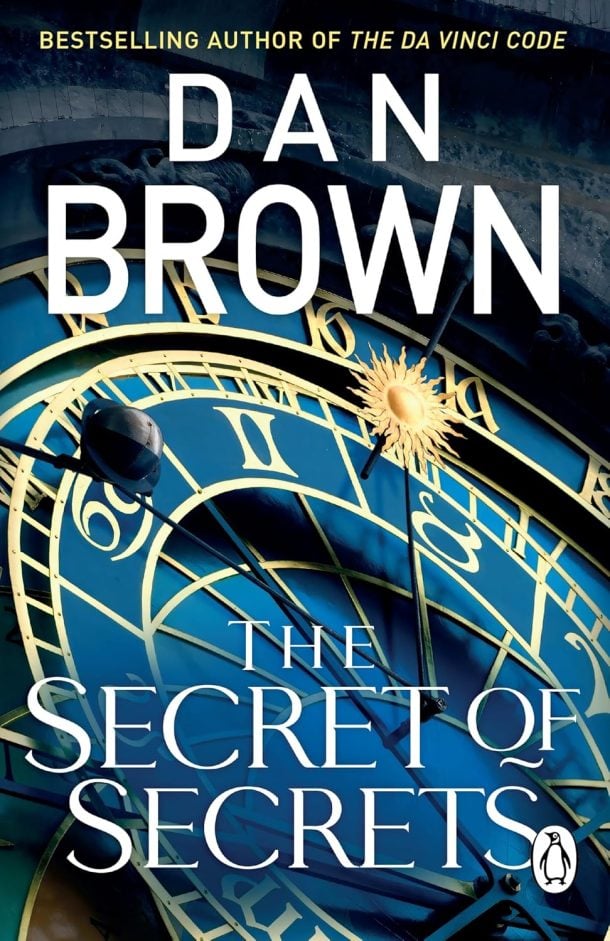 The Secret of Secrets by Dan Brown
The Secret of Secrets by Dan Brown
The sixth adventure of Harvard symbology professor Robert Langdon explores the mysteries of human consciousness, the demonic projects of the CIA, and the city of Prague.“Ladies and gentlemen…we are about to experience a sea change in our understanding of how the brain works, the nature of consciousness, and in fact…the very nature of reality itself.” But first—Langdon’s in love! Brown’s devoted readers first met brilliant noetic scientist Katherine Solomon in The Lost Symbol (2009); she’s back as a serious girlfriend, engaging the committed bachelor in a way not seen before. The book opens with the pair in a luxurious suite at the Four Seasons in Prague. It’s the night after Katherine has delivered the lecture quoted above, setting the theme for the novel, which features a plethora of real-life cases and anomalies that seem to support the notion that human consciousness is not localized inside the human skull. Brown’s talent for assembling research is also evident in this novel’s alter ego as a guidebook to Prague, whose history and attractions are described in great and glowing detail. Whether you appreciate or skim past the innumerable info dumps on these and other topics (Jewish folklore fans—the Golem is in the house!), it goes without saying that concision is not a goal in the Dan Brown editing process. Speaking of editing, the nearly 700-page book is dedicated to Brown’s editor, who seems to appear as a character—to put it in the italicized form used for Brownian insight, Jason Kaufman must be Jonas Faukman! A major subplot involves the theft of Katherine’s manuscript from the secure servers of Penguin Random House; the delightful Faukman continues to spout witty wisecracks even when blindfolded and hogtied. There’s no shortage of action, derring-do, explosions, high-tech torture machines, attempted and successful murders, and opportunities for split-second, last-minute escapes; good thing Langdon, this aging symbology wonk, never misses swimming his morning laps. Readers who are not already dyed-in-the-wool Langdonites may find themselves echoing the prof’s own conclusion regarding the credibility of all this paranormal hoo-ha: At some point, skepticism itself becomes irrational. A standout in the series. Kirkus Reviews, September 2025.
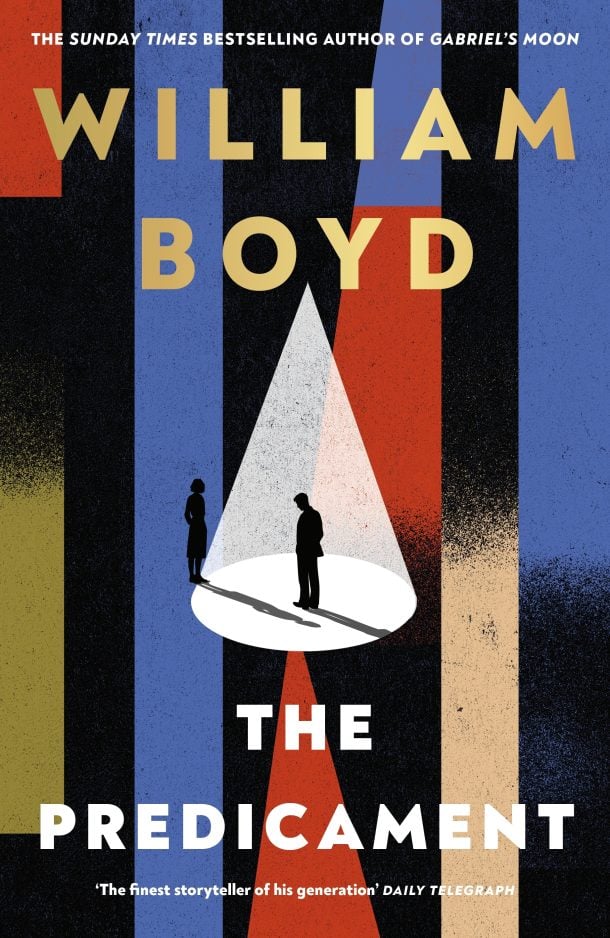 The Predicament by William Boyd
The Predicament by William Boyd
Travel writer Gabriel Dax, recruited by MI6, continent-hops from Guatemala to London to Berlin on agency business. Introduced in Gabriel’s Moon (2024), Dax has his hands full between his spying and his book-writing, which gives him a handy cover for his undercover work. In March 1963 he is sent to Guatemala to observe the charismatic “Padre Tiago,” an activist ex-priest who may become president. No sooner does Gabriel arrive than a coup breaks out; Padre Tiago is killed, as is his promise to nationalize the all-powerful United Fruit’s plantations and return them to the workers. Dax returns to England, where he reignites the passionate (on his end) affair with Faith Green, his manipulative MI6 boss and “puppet-mistress.” She is a prime topic of his discussions with his shrink, Katerina Haas, who encourages him to be his “true self”—a concept with which this novel about people who aren’t what they seem has a lot of fun. Then he’s sent to Germany to work with a young female CIA agent in tracking Dean Furlan, a shady businessman he encountered in Guatemala; Furlan may have orchestrated two recent attempts to kill President Kennedy in the U.S. and is now in Berlin, a few weeks prior to JFK’s state visit. The novel breezes along, with Gabriel making like James Bond, until an anticlimactic epilogue dated November 22, 1963, implies that events in Berlin explain what happened in Dallas. Few literary novelists are as comfortable with espionage tropes as Boyd, who uses the genre as a platform for another of his comically flawed, self-delusional protagonists. An undeveloped subplot involving a Russian triple agent seems likely to be picked up in the next Dax novel. A thriller that’s always in motion but, unlike its hero, always knows where it’s going. Kirkus Reviews, October 2025.
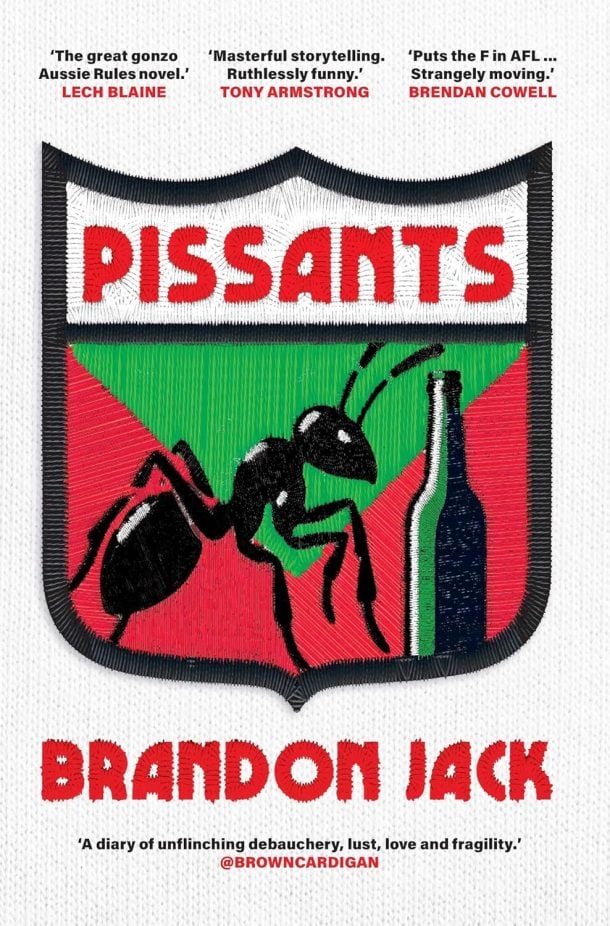 Pissants by Brandon Jack
Pissants by Brandon Jack
If you’re a person that baulks at reading about sex, drugs, and debauchery, and is allergic to the dreaded f-word and its much more controversial swear-mate, the c-word – this is absolutely not the book for you. But if you’re up for reading about these matters, are not shy of this kind of Australian vernacular, and are seeking a reading experience that is unlike any other you’ll encounter this year, Pissants is absolutely the book for you. It’s a raw, honest, and audacious take on the AFL machine that churns through so many young people in our community, and is eye-opening, eye-watering, and surprisingly emotional. Brandon Jack (yes, the Brandon Jack who is a former Sydney Swans player and also wrote the critically acclaimed 2021 memoir, 28) has written this debut work of fiction, which leaves no detail of the club experience unexplored, using a range of creative writing styles (an interview transcript, a bingo card, a WhatsApp chat, internal monologues, along with more straightforward discursive modes), to get deep inside the psyches of Fangs, Stick, Shaggers, Elliott, and many others who form the secondary players and staff of the redacted Football Club. These multiple literary techniques are incredibly effective in building the picture of what might happen off the field, in the locker room and beyond, illuminating the pressures on these young men, who are all so desperate to belong and be valued, and must seek and perform that belonging and value in a hyper-masculine corporate environment, relying on corporeal talents that are only one injury or bad decision away from obsolescence. It’s intense. As I was wincing and laughing my way through this narrative whose protagonists operate in a parallel universe to mine, I wondered whether my bookish self would ever be imagined as the ideal reader for this novel. I reasoned that on a superficial level I’m an unlikely candidate, if only for the fact that I’ve been to precisely one AFL game in my life. But the great big heart of this book is a critical take on so many of the things I want to read about: identity, passion, culture, language, and the always unfinished work of making the self, written with tremendous flair, sensitivity, and originality by a writer who is a reader and a thinker. Turns out, I f***ing loved Pissants, and Brandon Jack just drop-punted it straight into my heart. Readings, June 2025.
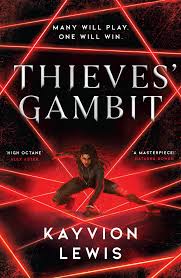 Thieves’ Gambit by Kayvion Lewis
Thieves’ Gambit by Kayvion Lewis
The ultimate competition between thieves tests friendships and family ties. Seventeen-year-old Rosalyn “Ross” Quest, a member of a notorious Black Bahamian family of globe-trotting thieves, has spent her entire life honing her skills and following in her mother’s footsteps. But now she just wants to live a normal life, go to college, and make some friends her age. When her attempt to evade her family and secretly make it to a summer gymnastics camp goes awry, Ross’ mother is left in a life-threatening situation, and the only way Ross can save her is by competing in the Thieves’ Gambit, a potentially deadly heist competition that offers its winner one wish. Ross is up against the biggest names in the game from around the world, including Noelia, a Swiss girl who’s her childhood enemy. Hopping from country to country as she competes in increasingly dangerous challenges, Ross must discern whom she can trust, if anyone, while her feelings for fellow competitor Devroe, a Black British boy, grow. In a manner true to the genre, the pacing is fast, and readers will experience the best kind of whiplash as the story moves from one heist to the next. The characters are also fully realized, and it’s impossible not to root for Ross as she tries to figure out who she’s meant to be. A fast-paced roller coaster of a read. (Thriller. 13-18). Kirkus Reviews, June 2023.
 Lula Dean’s Little Library of Banned Books by Kirsten Miller
Lula Dean’s Little Library of Banned Books by Kirsten Miller
This incisive comedy from Miller (The Change) finds a Georgia town transformed amid a fight over book bans. Lula Dean, a restless empty nester who’s starved for attention, finds purpose by banning books she deems inappropriate for children, among them Anne Frank’s The Diary of a Young Girl and Toni Morrison’s Beloved. Furthering her crusade, Lula stocks a makeshift lending library in front of her house with “appropriate” titles like The Southern Belle’s Guide to Etiquette. Lindsay Underwood, a lesbian teen, takes action by sneaking banned books into the lending library under the cover of dust jackets belonging to Lula’s approved books. As various townspeople read the works Lula meant to ban, they start changing their lives and the town for the better (a formerly subservient woman outs her husband for secretly collecting Nazi memorabilia; a high school football star comes to accept his gay older brother; and a group of teens rally against the town’s Confederate monuments). The story climaxes with a heated race for town mayor between Lindsay’s mother, Beverly, who vehemently opposes the book bans, and Lula. While some of the plot turns strain credulity, they make for a clever send-up of book banners’ misplaced fears. Miller’s fans will flock to her latest page-turner as social critique. Publisher’s Weekly, March 2024.
 Ruins by Amy Taylor
Ruins by Amy Taylor
Ruins is Amy Taylor’s second novel after the hugely successful, and Readings Prize shortlisted, Search History. Both books explore modern-day relationships, tensions, deceit and privilege. Where Search History is darkly funny, Ruins is more serious in tone; it is, in fact, a tragedy. From the outset, we know that this story is not going to turn out well. Our protagonists’ downfalls are hinted at in the prologue. This unease sits in the back of your head throughout the whole book, ensuring you turn over every angle and interaction looking for the rot, and of rot there is plenty. In Act 1 (yes, there are three), we hark back three months to find Emma and Julian in Corfu, where they are unwinding before they head to Athens to housesit for a friend. Julian is an academic who has seized the chance to be closer to the origins of his work; Emma has just walked away from a PR job she thrived in and is looking for her next move. We learn that after a mutual agreement to remain childless, Emma fell pregnant, but then miscarried. Since they first met, they had always been on the same page; however, recently they have been drifting apart. The hope is that this trip will bring them closer together. It is here on the island that Emma has a sexual fantasy that involves another person, which she becomes determined to make a reality. And from there the tragedy unfolds. Taylor masterfully layers her characters: they are flawed, they are insufferable, they are human. Even though you know this story is not going to end well, it is unclear exactly how it is going to unravel – a marvel, really, when you consider the setup. Readings, June 2025.
 The Emperor of Gladness by Ocean Vuong
The Emperor of Gladness by Ocean Vuong
A young man’s path to redemption runs through a New England chain restaurant. Hai, the hero of Vuong’s ambitious second novel—following On Earth We’re Briefly Gorgeous (2019)—is a 19-year-old college dropout and painkiller addict prepared to kill himself by leaping off a bridge in East Gladness, a rural Connecticut town. He’s coaxed to safety by Grazina, an 82-year-old woman with dementia, and soon he becomes her in-home support; with the help of a cousin, Sony, he lands a job at HomeMarket, a fast-casual joint. This is an unlikely milieu for a novel about the long consequences of violence, but that’s what Vuong strives for: In poetic, somber prose, he contemplates Grazina’s memories of escaping her native Lithuania under Stalin’s purges, the U.S. Civil War (Sony is obsessed with battles and the film Gettysburg), and his own family’s escape from Vietnam to America. The book is filled with some brilliant set pieces: A harrowing scene where Hai and his co-workers slaughter pigs for extra cash, his boss’s ill-fated attempt to launch a career as a pro wrestler, and moments where Hai soothes Grazina in the midst of her dementia by pretending to be a U.S. Army sergeant helping her escape Stalin’s clutches. And throughout, Hai serves as a sponge absorbing America’s worst elements: addiction, racism, and the urge to feign hollow successes. (He routinely lies to his mother, who believes he’s thriving in med school.) The references to Slaughterhouse-Five and The Brothers Karamazov underscore Vuong’s interest in exploring war and morality, but this is remarkable as a novel that tries to look at those themes outside of conventional realism or combat porn. It’s a messy but worthy exploration of how hurt and self-deception leaches into everyday life. A sui generis take on the surprising and cruel ways violence is passed on across generations. Kirkus Reviews, February 2025.
 Tom Clancy’s Terminal Velocity by M.P. Woodward
Tom Clancy’s Terminal Velocity by M.P. Woodward
Evildoers plan attacks from America to India, and Jack Ryan Jr. is a prime target. In Washington state, a man and his family are murdered, and President Jack Ryan learns it is another Poseidon Spear incident. Three retired members of that counterterrorism group have been killed now, and the U.S. government suspects a mole in its midst. Meanwhile, the Umayyad Revolutionary Council believes it has a holy and wholly anti-American mission. Against this backdrop, Jack Ryan Jr., and his fiancée, Lisanne Robertson, visit Delhi, India, to attend the wedding of Srini Rai, the brilliant surgeon who attached Lisanne’s prosthetic left arm. Lisanne had lost her arm in Tom Clancy Shadow of the Dragon (2020). Jack and Lisanne are both operators working for the Campus, a covert group that executes secret presidential directives. A wedding is a happy occasion, and the engaged American couple intend the trip as a vacation. Jack and Lisanne will attend a sangeet, an elaborate pre-wedding party. But it isn’t long before they survive a suicide bomb attack. As with all Clancy novels, there’s plenty of action on a global scale. In simultaneous strikes, terrorists plan to contaminate America’s Western water supply with radioactive waste from Washington’s Hanford nuclear power plant, blow up a spectacular new bridge in Kashmir, and kill the evil Ryan—or Junior, at least. It will be At-Takwir, the end of days. There is an appealing mix of Indian culture, high-speed action, and the rich lode of details that characterizes the whole series. And in the background lingers the question on several characters’ minds: Have Jack and Lisanne set their own wedding date? A fun read. Terrorists make great Clancy fodder. Kirkus Reviews, August 2025.
Return to top
HISTORICAL FICTION
| Byrnes, John | The youngest son |
| Davies, Cindy | The favourite of the harem |
| Follett, Ken | Circle of days |
| Martin, Madeline | The secret book society |
| Spencer, Jonathan | Hazzard’s convoy |
 Circle of Days by Ken Follett
Circle of Days by Ken Follett
A dramatic, complex imagining of the origins of Stonehenge. In about 2500 B.C.E. on the Great Plain, Seft and his family collect flints in a mine. He dislikes the work, and the motherless lad hates the abuse he gets from his father and brothers. He leaves them and arrives at a wooden monument where sacred events such as the Midsummer Rite take place. There are also circles of stones that help predict equinoxes, solstices, even eclipses. This is a world where the customary greeting is “May the Sun God smile on you,” and everyone is a year older on Midsummer Day. Except for a priestess or two, no one can count beyond fingers and toes—to indicate 30, they show both hands, point to both feet, then show both hands again. Casual sex is common, and sex between women is less common but not taboo. Joia, a young woman who becomes a priestess, wonders about her sexuality. After a fire destroys the Monument, she leads a bold effort to rebuild it in stone. To please the gods, they must haul 10 giant stones from distant Stony Valley. Of course neither machinery nor roads exist, so the difficulties are extraordinary. Although the project has its detractors, hundreds of able-bodied people are willing to help. Craftspeople known as cleverhands construct a sled and a road, and they make the rope to wrap around the stones. Many, many others pull. And pull. Meanwhile, the three principal groups—farmers, woodlanders, and herders—all have their separate interests. There is talk of war, which Joia has never seen in her lifetime. Soon it seems inevitable that the powerful farmers will not only start one but win it, unless heroes like Seft and Joia can come up with a creative plan. But there is also the matter of love for Joia in this well-plotted and well-told yarn. The story has a lot of characters from multiple tribes, and they can be hard to keep track of. A page in the front of the book listing who’s who would be helpful. Vintage Follett. His fans will be pleased. Kirkus Reviews, July 2025
Return to top
MYSTERY
| Amphlett, Rachel | Murder in the lakes |
| Brissenden, Michael | Dust |
| Chapman, Jude | The body at bones |
| Christine, Lee | Glenrock |
| Downing, Samantha | Too old for this |
| Ellis, Kate | Coffin Island |
| Galbraith, Robert | The hallmarked man |
| Gentill, Sulari | Five found dead |
| Harris, Narrelle M. | The she-wolf of Baker Street |
| Herron, Mick | Clown town |
| Kay, Adam | A particularly nasty case |
| Kirk, J. D. | The killing code |
| Marsons, Angela | 36 hours |
| McCall Smith, Alexander | In the time of five pumpkins |
| Moss, Tara | The Italian secret |
| Osman, Richard | The impossible fortune |
| Parks, Alan | To die in June |
| Petraitis, Vikki | The stolen |
| Robb, J. D. | Framed in death |
| Smirnoff, Karin | The girl with ice in her veins |
| Thorogood, Robert | Murder on Marlow Belle |
| Uketsu | Strange houses |
| Weaver, Tim | The missing family |
| Whish-Wilson, David | Cutler |
| Yeowart, Lyn | The hollow girl |
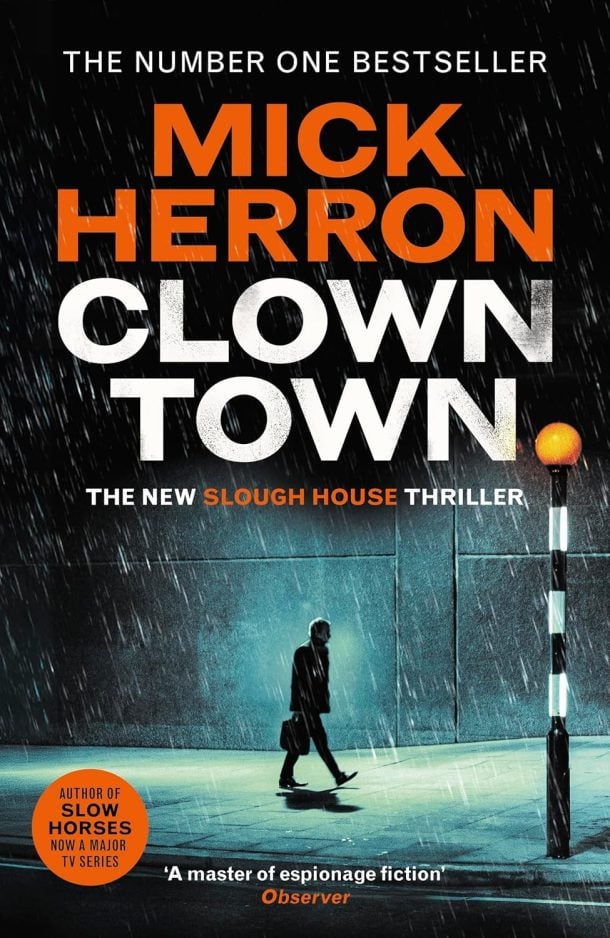 Clown town by Mick Herron
Clown town by Mick Herron
A series of mounting complications leads to yet another fight to the death between the discarded intelligence agents of Slough House and the morally bankrupt head of MI5. As Jackson Lamb’s motley crew on Aldersgate Street struggles to cope with the deaths of River Cartwright’s grandfather and mentor, intelligence veteran David Cartwright, and their dim, beloved colleague Min Harper, new troubles are brewing. Diana Taverner, who runs the British Intelligence Service from Regent’s Park, is being blackmailed by former MP Peter Judd to do his bidding. Nothing untoward about that, of course, but this time, Judd’s demands, backed by a compromising tape recording, are more pressing than usual. So Diana reconvenes the Brains Trust—Al Hawke, Avril Potts, Daisy Wessex, and their ex-boss Charles Cornell Stamoran—whose last assignment was to serve as the contact for psychopathic IRA informant Dougie Malone while turning a blind eye to his multiple rapes and murders, which were really none of the Crown’s business. Taverner’s new assignment for the Brains Trust is the assassination of Judd. Since all these developments are filtered through the riotously cynical lens of Herron’s imagination, nothing goes as planned, and when the smoke clears, the fatalities don’t include Judd. Now that Judd knows he has as much reason to fear Taverner as she does to fear him, Lamb offers to broker a peace meeting between them which Slough House computer geek Roddy Ho will keep secret by knocking out 37 security cameras around Taverner’s dwelling. What could possibly go wrong? The best news of all: The climax leaves the door open to further reports from the hilariously misnamed British Intelligence. Kirkus Reviews, May 2025.
 In The Time of Five Pumpkins by Alexander McCall Smith
In The Time of Five Pumpkins by Alexander McCall Smith
The No. 1 Ladies’ Detective Agency gets backed into accepting competing clients in the same case. It’s a trying day for Mma Grace Makutsi, the agency’s self-anointed executive president for development, when not one but two visitors refer to her as a secretary. The first, Special Pest Services owner Mr. Excellence Modise, who wants the agency to confirm his fears that his wife is cheating on him, is “an extremely annoying man.” And it feels as though there’s something sketchy about the second, Mr. Freddie Mogorosi, the owner of a big franchise garage who wants to persuade Tlokweng Road Speedy Motors owner Mr. J.L.B. Matekoni, the husband of agency founder Mma Precious Ramotswe, to join a trade association to establish and enforce professional standards. The conflict arises when Mma Ramotswe and Charlie, the assistant who’s not quite a mechanic and not quite an investigator, shadow Aleseng Modise and find her in a compromising situation that’s not so compromising after all; she claims her husband’s the one who’s cheating on her and asks Mma Ramotswe to accept her as a client as well. The ethical conflicts are obvious, but since she owns the only detective agency in Gaborone, Mma Ramotswe feels honor-bound to represent both parties. Meanwhile, Mr. J.L.B. Matekoni’s adventures with Mr. Freddie Mogorosi expand to include a crocodile and a deadly snake, leaving him not so much frightened as bewildered. As usual in this celebrated franchise, the pace is leisurely, the felonies are minimal, the tone is reflective and the results are enchanting. Although Mma Ramotswe concludes, “We are a detective agency—we are not menders of souls,” readers may well disagree.
The Italian Secret by Tara Moss
Australian PI Billie Walker makes game-changing family discoveries in the entertaining third installment of this historical mystery series from Moss (after The Ghosts of Paris). In 1948 Sydney, Billie is helping Darlene Elliott divorce her abusive, philandering husband by proving his infidelity. Then, while rearranging her late father’s filing cabinets, Billie stumbles on £500 and a packet of love letters from an Italian woman she’s never heard of. Stunned, she books passage on a luxury cruise to Naples—ostensibly to relax, but also to investigate the possibility that her father was having an affair. Just before the SS Luxor sets sail, Darlene Elliott dies mysteriously, and Billie blames her archnemesis, Vincenzo Moretti, whose backstory turns out to cut much closer to Billie’s own than she realized. Moss manages to keep her copious plot threads from getting tangled, and she supplements the action with sumptuous period fashion and simmering romance. (The love triangle between Billie; her assistant, Sam; and Sydney detective inspector Hank Cooper, while lopsided, is inspired.) If some of the tale’s feminist rhetoric feels flown in from the future, it only enhances the enjoyable sense of wish fulfillment. Moss’s fans won’t be disappointed. Publisher’s Weekly, October 2025
 The Impossible Fortune by Richard Osman
The Impossible Fortune by Richard Osman
The Thursday Murder Club is back and better than ever. Former spy Elizabeth hasn’t been herself since her husband Stephen’s death, which explains the two-year gap since the group’s last outing. (Well, that and the fact that Osman was busy writing the first book in a new series, We Solve Murders.) Osman handled Stephen’s Alzheimer’s disease with great sensitivity in The Last Devil To Die (2023), and, here, it’s a pleasure to watch Elizabeth gradually re-engage with the world as her best friend, Joyce, prepares for her daughter’s wedding. About time, too, Joyce would probably say—Joanna has a successful career, but did she have to wait till her 40s to give Joyce that most coveted of relations, a son-in-law? And then what happens but that son-in-law’s best man, Nick, approaches Elizabeth at the reception and tells her someone tried to kill him that morning. The next day, Nick’s office is tossed, and he disappears. He’s in the security business, the owner of a remote storage facility where people can keep anything they choose in absolute privacy and safety. He and his partner, Holly, were once paid by a client in bitcoin that’s now worth 150 million pounds, and they each know half the code that would unlock it. They had just decided to sell it and had asked a few people for advice. All of these folks are now suspects in Nick’s attempted murder. Or is it actual murder? This being the Thursday Murder Club, there’s a lot more going on, of course. There are parts to play for Ibrahim, the psychologist who might be the most trusted man in England, and Ron, the former trade unionist who would do anything for his family—and his friends are his family, too. There are possibly reformed drug dealers, absolutely not reformed gangsters, a peer of the realm, the usual assortment of police officers, and a walk-on part for Prince Edward. There are satisfying red herrings and a well-constructed answer to the puzzle of what happened to Nick and why. And you’ll be happy just to have spent some time in Osman’s delightful world. If you’re coming to the series from the Netflix movie, start at the top. If you’ve read the others, this is a high point. Kirkus Reviews, October 2025
 To Die in June by Alan Parks
To Die in June by Alan Parks
On the mean streets of Glasgow, crime never takes a holiday. DI Harry McCoy’s sixth compelling mystery begins with an emergency call to a squalid crime scene where Jamie MacLeod, who’s unhoused, lies dead and missing a shoe. In short order, another similar corpse is discovered, nudging Harry to the grim assumption that Glasgow is harboring a serial killer targeting the down and out. Nor is this the only series of crimes that Harry and partner Douglas “Wattie” Watson must tackle in the six-week span from late May to early July 1975. He’s assigned to a new station house in an undercover assignment to probe corruption there. His concern for a man named Jumbo, who’s taken a job as the bodyguard to Paul Cooper, a crime boss’ son who’s also Harry’s longtime friend, signals that he may be softening. It’s complicated. Further complications arrive in the case of Judith West, who’s frantic over the disappearance of her 9-year-old son, Michael. Strangely, it appears that no son exists; Judith’s clergyman husband verifies their childlessness and confesses his worry over Judith’s behavior. Harry’s not so sure. After Judith dies by suicide, Harry uncharacteristically attends her funeral, where a gray feeling settles over him and remains. Parks’ gritty, panoramic novel particularly rewards series fans by deepening the stories of several returning characters. At the end, weary Harry contemplates his future. Could this be his final case? Sharp and bracing Scottish noir, with a streak of dark nostalgia. Kirkus Reviews, June 2024
 Framed in Death by J.D. Robb
Framed in Death by J.D. Robb
Someone is stalking the streets of Lt. Eve Dallas’s New York, intent on bringing new life to sex workers by snuffing out their old ones. In 2061, prostitutes are called licensed companions, and that’s Leesa Culver’s job description when she’s accosted by a plausible-looking artist who wants to hire her as a model for the night. Before the night is over, she’s been drugged, strangled, costumed, and posed as an uncanny replica of Vermeer’s Girl With a Pearl Earring. The shock of the crime is deepened by the murder the following night of licensed companion Bobby Ren, whose body is discovered at an art gallery entrance costumed and posed as Gainsborough’s Blue Boy. The killer clearly has an obsessive agenda, a rapid-fire timetable, and access to unlimited financial resources that have allowed him to commission expensive custom-made outfits for the victims. This last detail both marks his power and points to the way Dallas, her gazillionaire husband, Roarke, and her sidekick, Det. Delia Peabody, will track him down by methodically narrowing the field of consumers who’ve purchased the costly costumes. After identifying the guilty party two-thirds of the way through the story, they’ll still face an uphill battle convicting a killer with no conscience, no respect for the law, and a budget that would easily cover the means to jump bail, remove his ankle tracker, and hire a private jet to escape to a foreign land with no extradition treaty. Robb keeps it all consistently absorbing by sweating every procedural detail along with her heroine. Only Dallas’ climactic interrogation of her prisoner is a letdown, because it’s perfectly obvious how she’s going to wangle a confession out of him. High art meets low life in a tale a lot more sympathetic to the latter. Kirkus Reviews, May 2025.
The Girl With Ice in Her Veins by Karin Smirnoff
Smirnoff’s second Millennium novel (after The Girl in the Eagle’s Talons) is a treat for longtime series fans. Several months after the events of the previous book, Lisbeth Salander’s 13-year-old niece Svala Hirak is interning at the newspaper Gaskassen. She’s also part of an environmental activist group, whose newest member, Simon Frisk, is an advocate for extreme—sometimes violent—protest. When Simon sexually assaults Svala and one of the teenage reporter’s friends turns up murdered, she links up with a dangerous ally to take revenge. Meanwhile, Mikael Blomkvist is hired to helm Gaskassen fresh off of his cancer diagnosis, while Lisbeth searches for her hacker friend Plague, who has been kidnapped by Marcus Branco, the sadistic crime lord who killed Svala’s mother and seeks a hard drive containing $400 million in bitcoin that only Svala can unlock. It’s a lot of plot, and Smirnoff makes no room for newcomers to the series, assuming that readers have a near-photographic memory of details from the previous novels. Those who have been following along closely, however, will be rewarded with clever twists and poignant developments in the relationships among the core cast. This continues Smirnoff’s hot streak. Publisher’s Weekly, June 2025
Murder on the Marlow Belle by Robert Thorogood
Thorogood’s delightful fourth cozy featuring 79-year-old crossword puzzle creator and amateur sleuth Judith Potts (after The Queen of Poisons) sees her investigating the murder of a local actor. When Verity Beresford’s husband, Oliver, fails to return home after attending an exclusive boat party for the board members of the Marlow Amateur Dramatic Society, Verity marches over to Judith’s home to ask for her help. Judith speaks with other party guests, none of whom saw Oliver leave the boat. A few days later, Oliver’s body is found on a riverbank with two bullet holes in his torso. With suicide and accident off the table, Judith swings into action with the help of her exuberant DJ friend, Suzie Harris, and the local vicar’s wife, Becks Starling. Together, the group finds that, though Oliver had plenty of petty rivals within Marlow’s dramatic society, this case might stretch decades into the past. Thorogood serves up everything cozy fans want: colorful characters, snappy dialogue, and a fair-play mystery with genuinely surprising plot twists. This will thrill series fans and new readers alike. Publisher’s Weekly, May 2025.
Return to top
NON FICTION
| Morris, Nicole | Missing | 364.36 MORR |
| Mueller, John | Artificial intelligence | 006.3 MUEL |
| Olson, Parmy | Supremacy | 006.3 PARM |
| Silvester, John | Dark city | 364.994 SILV |
| Walsh, Toby | The shortest history of AI | 006.3 WALS |
Return to top
SCIENCE FICTION & FANTASY
| Kuang, R. F. | Katabasis |
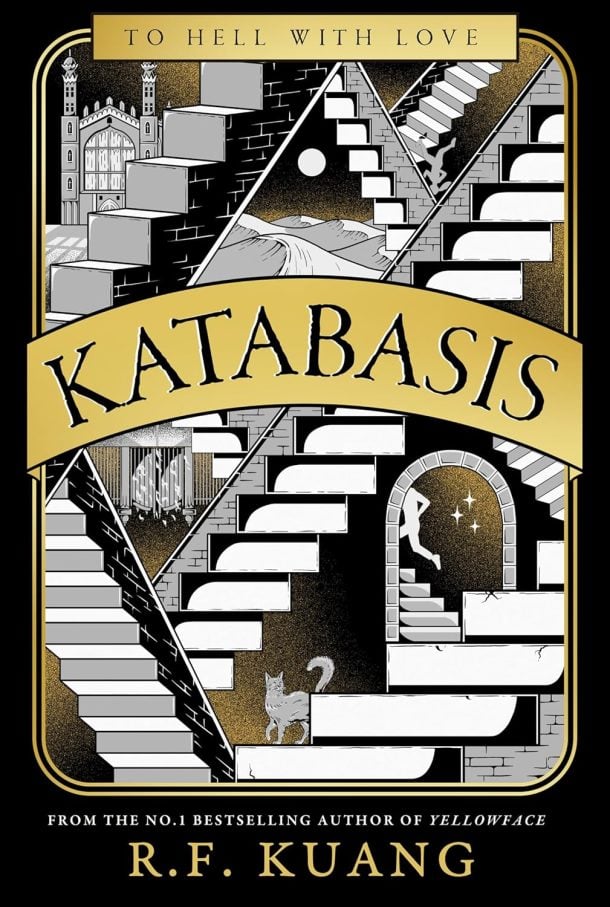 Katabasis by R.F. Kuang
Katabasis by R.F. Kuang
A Ph.D. candidate in Analytical Magick tackles a new academic challenge: rescuing her advisor from Hell. Alice Law is about to complete her graduate program at Cambridge under the auspices of Jacob Grimes, one of the foremost Magick scholars in the world. There’s just one problem: A spell gone wrong has led to Grimes’ sudden demise, and it may have been her fault. Alice feels bad about that, plus she needs Grimes to approve her dissertation and help her get a job, so she starts researching ways to travel to Hell. Her plans are interrupted by Peter Murdoch, one of Grimes’ other students—”He was simply born brilliant…Alice couldn’t stand him”—and she reluctantly agrees to join forces. Despite the accounts of Dante and the like, Hell is full of surprises, including (sometimes) a remarkable resemblance to a college campus. As Alice and Peter journey deeper, they encounter nefarious deities; twisted, once-human enemies; and Shades from Grimes’ past with their own agendas. Hell will test Alice and Peter in ways their academic careers have not, dredging up their pasts at Cambridge, their messy relationships with their advisor, and their distrust of each other—after all, academia is a cutthroat game. The stakes are high, with mortal souls on the line, as Alice grapples with the question of whether academia even matters. Kuang melds a fantasy adventure (don’t look too closely at the magic—that’s not the point) with a rumination on academia’s problems to create a new take on the journey through the underworld. Alice is deeply flawed but also deeply understandable, stuck in a system that damages her while making questionable choices that feed into the same system; this is a tightly constructed novel that aims a clear lens on academia, with both its faults and its virtues. The heady draw of discovery is ever-present, even if what Alice is discovering is Hell. A learned, literary manifesto on academia—and its darkness. Kirkus Reviews, April 2025.
Return to top
New additions to eBooks at SMSA
eBooks & Audiobooks help
EBOOKS
| Biography | Dumont, Adele | The pulling |
| General | Dalton, Trent | Gravity let me go |
| General | Kirk, Eleanor | Very impressive for your age |
| General | Kitamura, Katie | Audition |
| Historical | Rose, Heather | A great act of love |
| Mystery | Brissenden, Michael | Dust |
| Mystery | Disher, Garry | Mischance creek |
| Mystery | Hammer, Chris | Legacy |
| Mystery | Penrose, Andrea | Murder at Somerset house |
| Sci-Fi/Fantasy | Wells, Martha | Rapport |
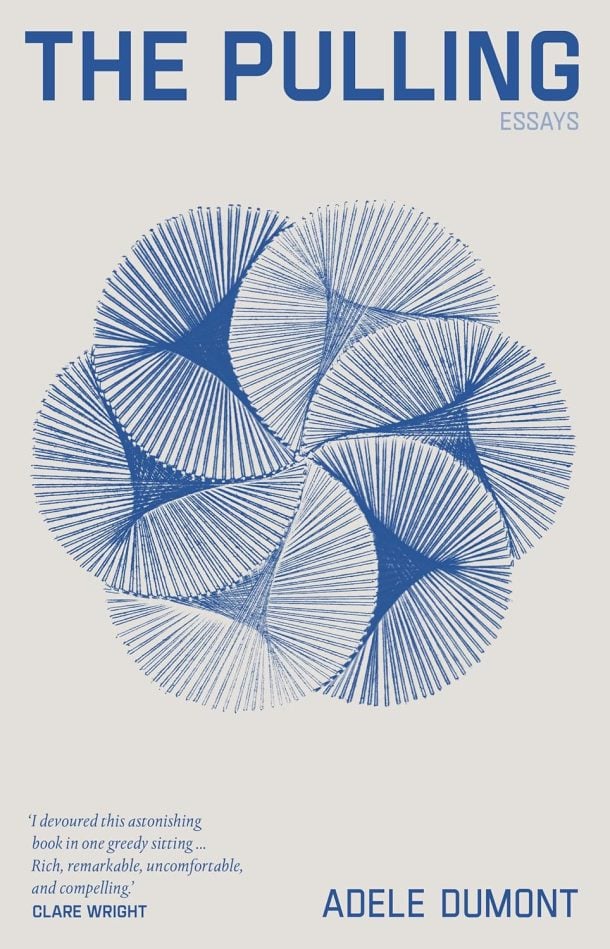 The Pulling by Adele Dumont
The Pulling by Adele Dumont
When Adele Dumont is diagnosed with trichotillomania – compulsive hair-pulling – it makes sense of much of her life to date. The seemingly harmless quirk of her late teens, which rapidly developed into almost uncontrollable urges and then into trance-like episodes, is a hallmark of the disease, as is the secrecy with which she guarded her condition from her family, friends, and the world at large. The diagnosis also opens up a rich line of inquiry. Where might the origins of this condition be found? How can we distinguish between a nervous habit and a compulsion? And how do we balance the relief of being ‘seen’ by others with our experience of shame? Reminiscent of the writing of Leslie Jamison and Fiona Wright, The Pulling is a fascinating exploration of the inner workings of a mind. In perfectly judged prose, both probing and affecting, Dumont illuminates how easily ritual can slide into obsession, and how close beneath the surface horror and darkness can lie. Good Reading Magazine, January 2024.
 Audition by Katie Kitamura
Audition by Katie Kitamura
Late in Katie Kitamura’s celebrated 2021 novel Intimacies, the narrator, a translator at “the Court” in The Hague, is in a restaurant with her manager when an acquaintance arrives and is seated across the dining room. Her attention is split between her manager in front of her, the acquaintance in her periphery who is behaving strangely, and a stream of thoughts she can’t suppress. It is one of many moments in Intimacies that captures the subtle but consequential features of human interaction. In her depictions of how an unexpected turn of phrase, awkward silence, unbidden distraction or shift in body language can change the weather in a room, Kitamura is unparalleled. Audition, Kitamura’s fifth novel, begins in a way that recalls this scene. The narrator-protagonist, a middle-aged actor in her final phase of preparation for a new play — and struggling to get a central scene right — arrives at a Manhattan restaurant to meet a much younger man called Xavier. He is seated at an oddly placed table between two doorways and they begin talking. But before the conversation can settle, another man, Tomas, arrives unexpectedly, and the tenor of the meeting shifts. Ultimately, we learn that the protagonist sees this as a moment after which “things were never entirely the same” for her. This simple line is freighted with meaning and the novel goes on to explore different versions and interpretations of these three characters’ lives. Kitamura’s recent protagonists have been translators, a role naturally suited to her interest in seemingly small breakdowns in communication between people. The job of Audition’s protagonist gives this theme a different emphasis: performance. Audition is a lightning bolt of a novel. One might read it alongside watching Coralie Fargeat’s Oscar-nominated body horror The Substance or Dan Erickson and Ben Stiller’s feted TV show Severance. All deal suggestively with performance, and the splitting of self and identity. Audition demands an attentive and careful reading but is also conspicuously of its moment. Financial Times, April 2025
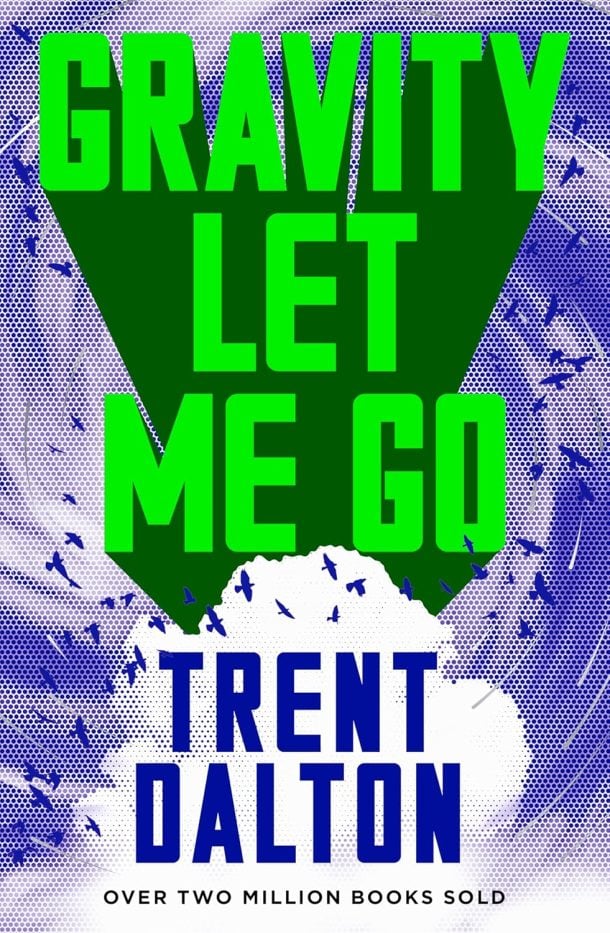 Gravity Let Me Go by Trent Dalton
Gravity Let Me Go by Trent Dalton
Gravity Let Me Go is Trent Dalton’s fourth work of fiction, and it doesn’t disappoint, once again drawing readers deep into a raw and chaotic world that is both unsettling and compelling. The novel opens with Noah Cork – a 44-year-old crime journalist – launching his first ‘white-hot true-crime book’. Written as a way to process the trauma of finding the remains of missing woman Tamsin Fellows, the book soon proves to be both Noah’s outlet and his undoing. He has lived for the past 16 years in Brisbane’s northern suburbs with his wife, Rita, and teenage daughters, Erin and Clem, in a street where everyone knows each other’s business. Convinced the truth should be told no matter the cost, he fails to consider the impact his words might have on those closest to him, on the victim’s family, or even on the killer still at large. Dalton (Boy Swallows Universe, All Our Shimmering Skies) steadily ratchets up the tension, unspooling a fast-paced plot as Noah’s world begins to implode after the publication of his book. In doing so, Dalton doesn’t shy away from graphic descriptions or explicit language, with these elements serving the story rather than overshadowing it. His signature mix of grit, heart and unexpected turns keeps the narrative gripping, with a twist. Books Publishing, September 2025.
 A Great Act of Love by Heather Rose
A Great Act of Love by Heather Rose
Heather Rose’s A Great Act of Love follows Caroline, an upper class widow who leaves London in the late 1830s to undertake a long and dangerous journey to Van Diemen’s Land. With no family or connections, she sets out to begin again at the end of the earth. She purchases land, finds work as a governess and throws herself into reviving a vineyard, but as ghosts from her past begin to surface, it becomes clear she may not be who she claims to be. A Great Act of Love is a beautiful example of reclaiming women’s stories from history, highlighting their strength, influence and ingenuity. The novel spans the final violent days of the French Revolution to the beginnings of Australia’s invasion and colonisation: depicting the horrific treatment of convicts and First Nations peoples. Chapters alternate between characters, slowly revealing backstories, motivations and historical insights. While the story is rich in detail and atmosphere, the final chapters wrap up too quickly, which may leave some readers wanting a more measured ending. Still, Rose’s ability to maintain a compelling, character-driven story within a complex historical setting is a clear strength, as is her exploration of father-daughter relationships, women’s roles in the workplace and positions of power. Recommended for readers who enjoy historical fiction, Rose’s Bruny and Nothing Bad Ever Happens Here, or historical nonfiction including Mary Hoban’s An Unconventional Wife and Clare Wright’s work. Books Publishing, August 2025.
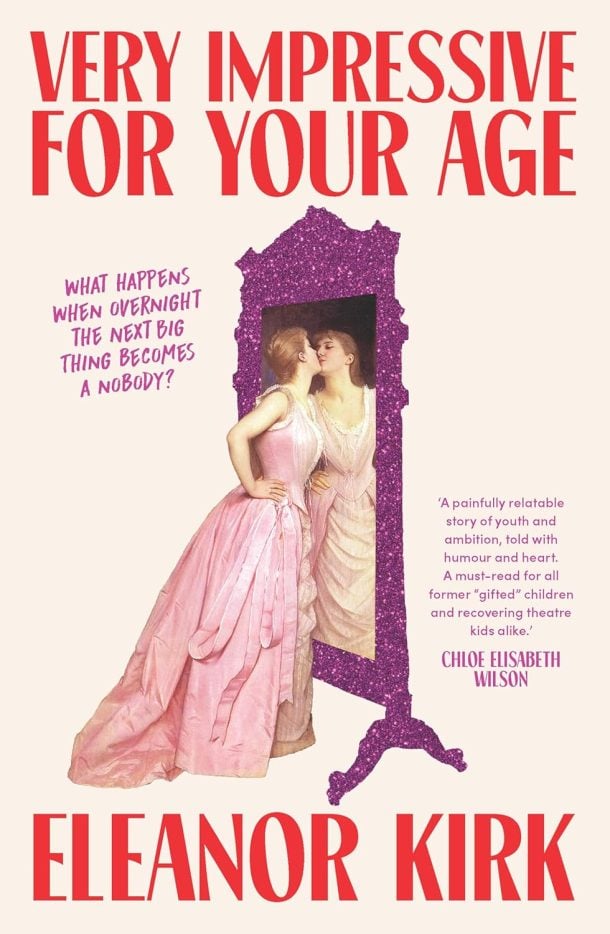 Very Impressive for Your Age by Eleanor Kirk
Very Impressive for Your Age by Eleanor Kirk
In Very Impressive for Your Age, Eleanor Kirk brings insight, wit and dark humour to her sharply drawn portrait of a young woman whose carefully imagined future vanishes overnight. Evelyn is 26 and on the cusp of fulfilling her childhood dream of becoming an international opera star in London until the unthinkable happens. During a lead performance at one of Europe’s most prestigious opera houses, her voice suddenly disappears. With no cure in sight, she is forced to return to her childhood home in Sydney, the city she thought she’d left behind for good. She insists she’s just taking a break to rest and recover, but deep down she’s devastated – grieving not just the loss of her voice, but also of her identity. Evelyn’s story is one of existential limbo, rendered with nuance and care. She’s ambivalent, angry, sad and unsure of who she is without her career, not always likeable but recognisable in way that feels emotionally familiar. While midlife crises are familiar territory in contemporary fiction, Kirk’s exploration of a quarter-life unravelling feels fresh. With sly intelligence and emotional precision, she resists tidy resolutions in favour of something far more honest: a portrait of the destabilising grief that can come with losing the life you thought you were meant to live. An assured, insightful debut for fans of Madeleine Gray’s Green Dot or Joseph Earp’s Painting Portraits of Everyone I’ve Ever Dated. Books & Publishing, July 2025.
Return to top
AUDIOBOOKS
| General | London, Julia | Everything is probably fine |
| General | McFadden, Freida | The housemaid |
| General | Tomforde, Liz | Mile high |
| Mystery | Cooper, Glenn | The last conclave |
| Mystery | Donlea, Charlie | Guess again |
| Mystery | Hillier, Jennifer | Jar of hearts |
| Mystery | Hoang Nguyen, Anabella | Poison at the Pumpkin festival |
| Mystery | Jenkin, Guy | Murder most foul |
| Sci-fi/Fantasy | Ashton, Edward | The fourth consort |
| Sci-fi/Fantasy | Noon, Jeff | Gogmagog |
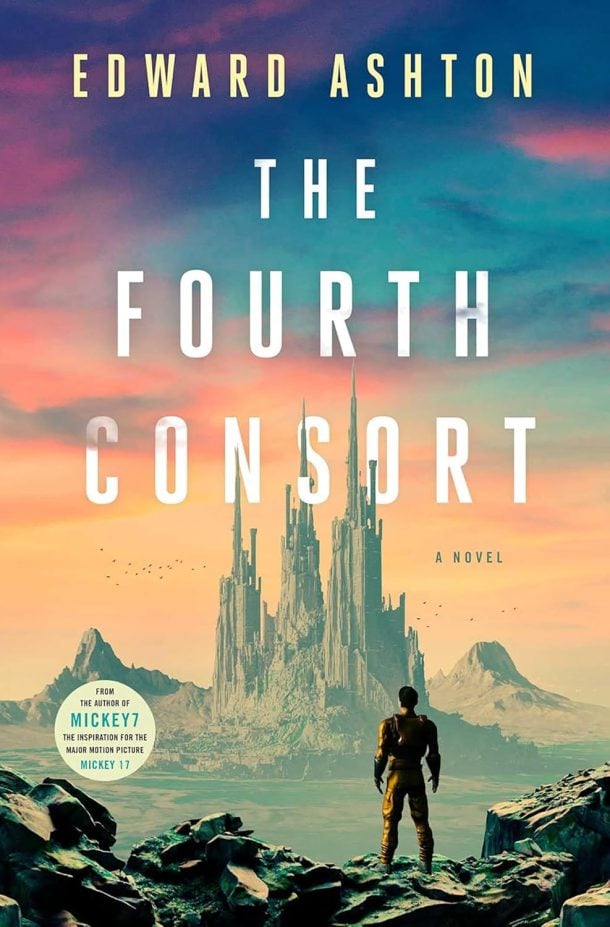 The Fourth Consort by Edward Ashton
The Fourth Consort by Edward Ashton
Barrie Kreinik narrates a sci-fi story that mixes alien politics with communication mishaps. Dalton is the first representative to join Unity–a galactic confederation of various species–but he fumbles through his first assignment with an alien soldier known as “Stickman.” Kreinik moves smoothly through the varied accents of characters. Conversations between Dalton and the alien soldier are both comical and heartbreaking, with Kreinik imbuing the back-and-forth miscommunications with surprising depth. The story moves fast, but Kreinik’s narration commands the ear, shifting between distinct characters that sound almost like different actors. A fascinating performance of a heartbreaking and endearing story of communication and connection. AudioFile Magazine, January 2025.
 Everything Is Probably Fine by Julia London
Everything Is Probably Fine by Julia London
After Lorna Lott, sales team leader, accidentally sends her team a message describing each of them in cruel superlatives (e.g. “most likely to microwave fish” and “most punchable face”), she is forced to take a month-long sabbatical at a wellness retreat, where she must attend sessions including a meditation hour she hates and meetings with a counselor, which are held on beanbags for reasons completely unfathomable to her. Begrudgingly, she finally interrogates the feelings she’s been holding onto: grief over her mother’s recent death and rage over her sister’s drug addiction. With the rest of her now-free time, she connects with her eight-year-old neighbor (and his handsome widower dad), and begins visiting people she thinks she wronged in the past to rebuild broken relationships, especially the one she has with herself. Funny and heartwarming, this book will appeal to readers who enjoy fish-out-of-water stories about people who learn how to connect with others to enrich their lives, like Gaily Honeyman’s Eleanor Oliphant Is Completely Fine (2017) and Abbi Waxman’s The Bookish Life of Nina Hill (2019). Booklist, July 2025
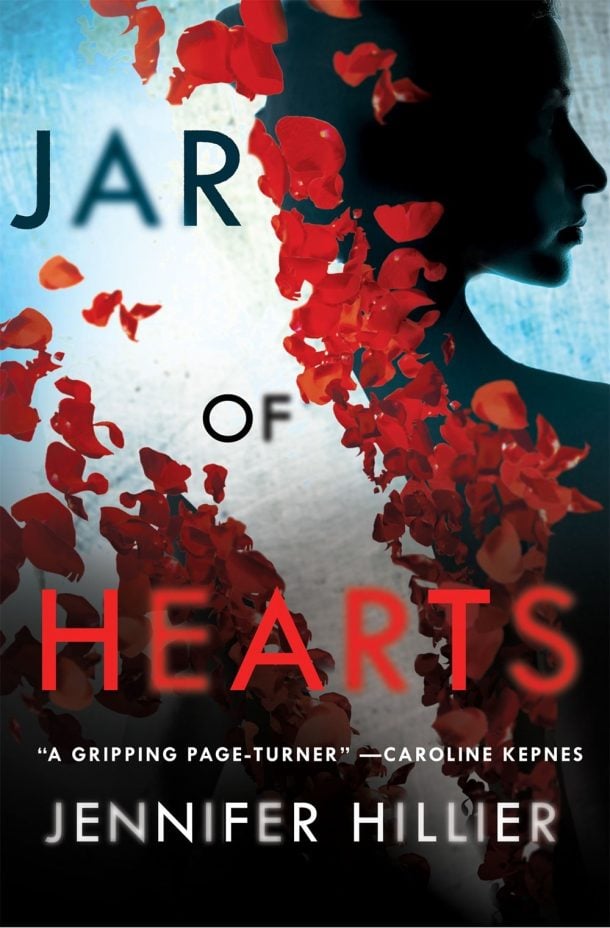 Jar of Hearts by Jennifer Hillier
Jar of Hearts by Jennifer Hillier
Geo and Angela do everything together. They attend the same parties and chase the same boys. Angela, the more beautiful one according to Geo, usually wins. But that all changes when they met Calvin James. He’s just that right mix of dangerous charm and self-confidence. They’re at a 7-11 when he steps up to the car and hands Geo a Slurpee she had left on the roof. Calvin locks eyes with Geo. Sparks fly. He ignores Angela, much to Geo’s surprise. Not long after this, Angela disappears. Fourteen years later Angela’s body is found in a shallow grave at the back of Geo’s house. She’s soon identified as one of the victims of the notorious serial killer known as the Sweetbay Strangler. Geo knew him as Calvin James. Geo is now a senior marketing executive with Shipp Pharmaceuticals and preparing to marry the CEO’s son. Everything is coming together after 14 years of hard work. Geo knew it was too good to be true, she didn’t deserve to be happy after what she had done, what Calvin had done. The police come knocking and she receives a five year maximum-security sentence for concealing Angela’s murder. While she’s doing her time, Calvin charms his way out of prison and is on the run. On her release, Angela returns home, only to find a hostile neighbourhood that want to see her gone for good, especially when bodies start turning up again in the woods near her home – bodies mangled in much the same way as Angela. Someone is sending her a message. Hillier’s thrilling novel takes all the expected patterns from serial killer novels and turns them upside down and inside out. This exciting book keeps you working hard to keep track of clues as you try to get a step ahead of the killer. Publisher’s Weekly, 2025


